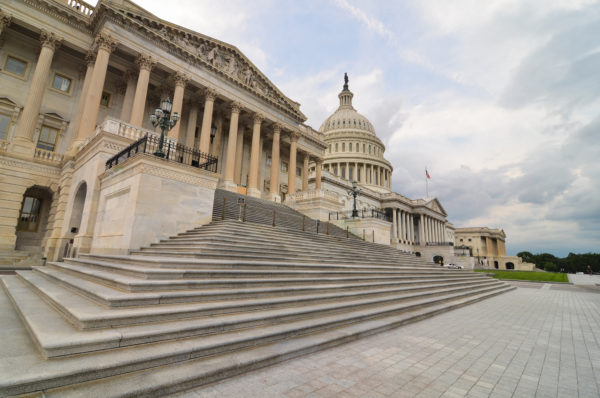During his last State of the Union address, President Obama emphasizes the need for continued focus on progress
Education spent a few brief moments in the spotlight during President Obama’s final State of the Union address on Jan. 12.
Obama touched on computer science and math education, college- and career-readiness, and early childhood education for all students as he spoke.
“The bipartisan reform of No Child Left Behind was an important start, and together, we’ve increased early childhood education, lifted high school graduation rates to new highs, and boosted graduates in fields like engineering,” Obama said.
One of the biggest developments in K-12 education is the Every Student Succeeds Act (ESSA), which replaced the much-maligned No Child Left Behind Act Obama mentioned. ESSA gives states increased latitude to determine how to best close achievement gaps.
“In the coming years, we should build on that progress, by providing Pre-K for all, offering every student the hands-on computer science and math classes that make them job-ready on day one, and we should recruit and support more great teachers for our kids,” he said.
Obama has focused heavily on STEM education, even taking time to participate in the Hour of Code during Computer Science Education Week.
He also signed the STEM Education Act of 2015 [1], which includes computer science education under existing federal grants and programs that relate to STEM education, and supports grants for informal STEM education occurring outside the classroom in places such as museums.
Ensuring equity of access to digital resources [2] has been top on the administration’s list. The focus has shifted to include not only high-speed internet access inside the classroom, but outside, as well. The Digital Learning Equity Act of 2015 calls for a national study on the “homework gap” and would identify and support pilot programs that expand digital learning opportunities for students when they are not inside the classroom.
What’s up next for education? That remains to be seen, as the topic has been a focus of both parties’ presidential candidates.
Hillary Clinton has proposed [3] doubling investments in Early Head Start and Early Head Start-Child Care programs, along with expanding preschool access.
Bernie Sanders has called for [4] expanding the availability of high-quality and accessible early childhood education programs.
Donald Trump at one point said he would cut funding [5] to the Department of Education.
Trump also voiced his dislike for the Common Core State Standards and said he believes in state and local control for education.
Marc Rubio also voiced opposition [6] to the Common Core and is in favor of local control. He has said he would promote increased school choice measures if elected president.
